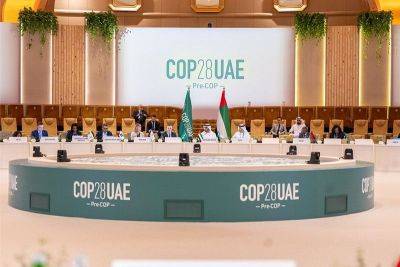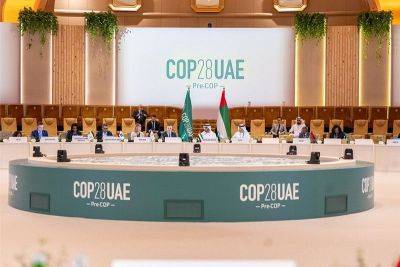The four battles to follow during COP28
PARIS, France — Reduce emissions, eliminate fossil fuels, supply developing nations with the means for a just energy transition... Here's a look at four highly contested issues of this year's COP28 climate negotiations in Dubai.
In 2015 ratifiers of the Paris Agreement pledged to limit global average temperatures, if possible, to 1.5 degrees Celsius above pre-industrial levels through national climate action plans to limit greenhouse gas emissions.
On current policy trends, the planet will warm by 2.8C by the century's end, according to the UN's IPCC climate science advisory panel.
It is no longer enough to promise, as more than 70 countries do, to be carbon neutral by 2050 or 2060.
Nations must negotiate the phase-out of the main contributor to global emissions, never mentioned in the Paris Agreement: fossil fuels.
Resources such as oil, coal and natural gas account for 80 percent of the world's energy consumption.
But COP26 in Glasgow only embraced a phase-down of "unabated coal" use. The future of oil and gas remained off the agenda.
That discussion can no longer be avoided at COP28, tasked with drawing up the first global stocktake of the Paris Agreement and identifying the necessary measures to correct course.
The states will not agree on a timeframe for the complete abandonment of hydrocarbons. But a number of countries, including the EU, will push for the virtual elimination of fuels burned without carbon capture and storage (CSS).
But by what date and at what pace remains to be decided. Nor is it clear what role emerging capture technologies -- often characterised as a loophole for emitters -- will play.
The conclusion of new projects or the reduction of subsidies and investments in this industry (1.34 billion dollars a year in 2019-21) will be a topic of bitter debate.
The goal is to map a path towards 43-percent emission reductions by 2030, compared to 2019.
It is impossible to unplug oil and gas without building "the energy system of the future" or risk a global economic meltdown, COP28 President Sultan Al Jaber likes to remind the world. Jaber is also the head of the Emirati oil company.
The talks will therefore revolve around accelerating







